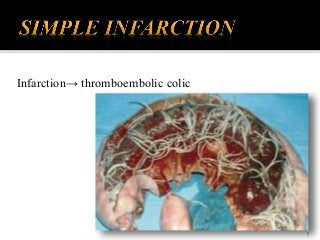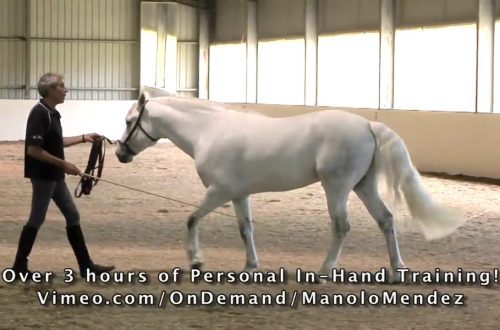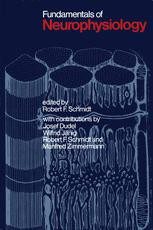
Thromboembolic colic in horses
Thrombo-embolic colic in horses occurs as a result of blockage by emboli or thrombi of the mesenteric arteries.

Photo: pixabay.com
Contents
Causes of thrombo-embolic colic in horses
The immediate cause of thrombo-embolic colic in horses is the formation of an aneurysm of the anterior mesenteric artery and the flow of emboli into the intestinal vessels with blood flow.
And the formation of an aneurysm is associated with the activity of the larvae of the nematode Delafondia vulgaris, which damage the walls of blood vessels.
Also, this kind of colic in horses is often associated with hard work (jumping, running, etc.)
Symptoms of thromboembolic colic in horses
Symptoms of thrombo-embolic colic in horses vary depending on the size of the occluded vessels and the size of the emboli.
In mild colic, the following symptoms are observed:
- Attacks of anxiety, which, however, quickly pass.
- Increased bowel movements.
- Increased peristalsis.
If the colic is moderate, the symptoms are as follows:
- Anxiety is strong, and it is growing.
- The pulse is quickened, gradually weakening.
- In the stool, impurities of bloody fluid are sometimes noticeable.
- Fever (moderate).
Symptoms of severe thrombo-embolic colic in horses:
- The horse is always worried.
- Decline of cardiac activity.
- Flatulence of the intestines.
- Paralysis.
The disease can last from 1 day (with a mild form), or more than 3 days, it all depends on how quickly peritonitis develops.
Prognosis for thromboembolic colic in horses
If colic is mild, then the horse stops worrying after 7 to 9 hours, and most often recovers in a day.
However, the severe form can last more than 3 days and end with the death of the horse.
Treatment of thromboembolic colic in horses
The main thing in the treatment of thrombo-embolic colic in horses is to restore collateral circulation as soon as possible.
It is also useful to introduce drugs that calm the horse, and anticoagulants.
If you notice warning signs, contact your veterinarian as soon as possible and strictly follow his recommendations!
Prevention of thrombo-embolic colic in horses
- Regular deworming of horses.
- Load dosing.





